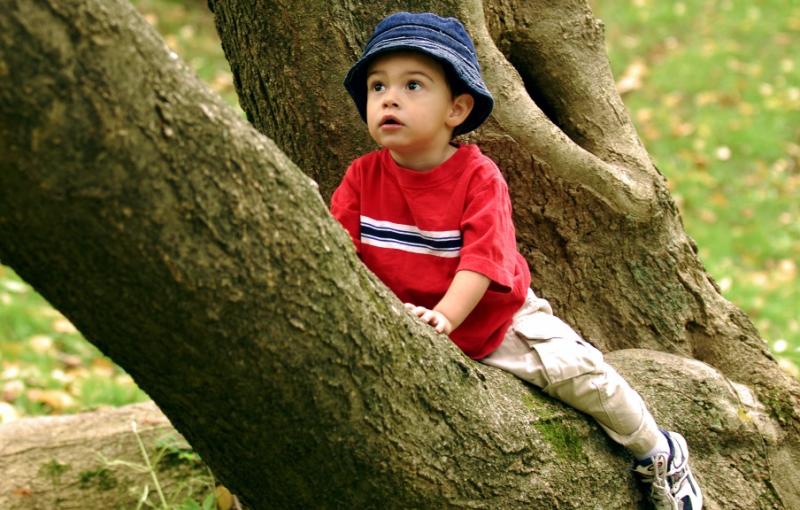A year on from the implementation of the revised early years foundation stage framework, Elizabeth Holmes examines the impact on early years practice and practitioners.

When the revised statutory framework for the early years foundation stage (EYFS) was published in March 2021 it is fair to say it wasn’t met with unanimous approval. Concerns with the content and application were expressed, and the wisdom of its setting within the wider context of a sector hit by Covid-19 questioned.
On publication of the framework, the Early Years Alliance issued a statement from its chief executive saying, ‘While we recognise that a review of the EYFS was necessary given that it has been a decade since the last was undertaken, we remain disappointed at how closed the entire process has been and the lack of any meaningful engagement with the sector.
‘Rather than reinforcing the need for and value of a child-centred approach to early years practice, the new framework appears to represent a shift towards a much more formal approach to provision, and one where the EYFS is seen as preparation for Key Stage 1, rather than a vital stage in and of itself.
‘The Alliance will continue to support the sector to implement and deliver the new framework in a way that reflects the critical importance of a broad, child-centred approach, underpinned by a commitment to learning through play – practice that we as a sector know is best for supporting early development.’
At the time, the DfE explained that the proposals were intended to:
Optimus Education's EYFS bitesize training course has been updated in line with the revised statutory framework. The 17 units can be accessed as part of membership, or purchased individually for £25, with further discounts available when buying multiple units. Browse the unit listing.
The changes that were made to the EYFS were aimed at improving outcomes at age 5, in particular in early language and literacy, and also at reducing workload such as unnecessary paperwork so that staff in early years settings can spend more time with the children in their care. Impact has reportedly been mixed but there are positives.
Joe Benge is a preschool teacher in Islington. He explained that his focus is on the needs of the children in his cohort rather than aiming to get them towards an end goal. He said, ‘On the whole, the changes to the EYFS haven't really changed the way I teach. The aim of reducing workload is a good one, and it's been a priority in my setting this year. We spend less time assessing children and put more trust in our knowledge of the children. But there is still a lot of paperwork that gets in the way of interacting with the children.’
The EYFS areas of learning are:
For Benge, the increased focus on literacy and language is misplaced. ‘In my opinion,’ he said, ‘coming out of the lockdowns and Covid measures has seen children struggling with all of the prime areas, and I think we need to be spending as much of our efforts on helping children develop their social skills and gross and fine motor skills as we do on their language. I think it's really positive that self-regulation is recognised as one of the new ELGs, and we also focus on this a lot in our setting, although the EYFS doesn't mention the importance of adults co-regulating with children to help them develop this crucial skill.’
Melanie Pilcher, Quality and Standards Manager at the Early Years Alliance, takes a broad view of the current picture in early years. She explained, ‘Prior to the implementation of the EYFS, the DfE reassured providers that the updated framework would not prompt any changes to good practice in early education. Instead, the framework effectively focuses on encouraging practitioners to use the new framework to reflect on their provision, enabling them to articulate it clearly in-line with Ofsted requirements.
‘So, we encourage educators to engage with the EYFS framework in conjunction with the revised early years inspection handbook which was updated in 2019. This can at times be confusing as the handbook and the EYFS are not consistent in their uses of terms such as curriculum and educational programmes.’
In Pilcher’s experience, despite the updated EYFS, curriculum planning remains one of the biggest concerns for providers. ‘As a result,’ she explained, ‘we have found that providers continue to look for support on this, in addition to observation and assessment. At the Alliance we have produced our own briefing resources and training programmes as well as collaborating with other organisations and experts to produce the Birth to 5 materials to support the sector.’
For a sector that has struggled under the weight of numerous pressures in recent years, there is a sense from speaking to those within that it is doing well under challenging circumstances.
It is a strong sector backed by extensive research and expertise, that knows what it needs to focus on, and how to support young children in their learning and development. Allowing it to get on with that, with as little constraint as possible, just might facilitate the longer-term successes that we all want to maintain.